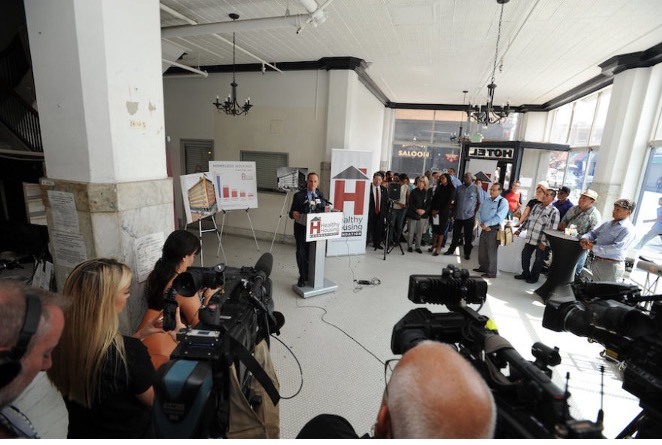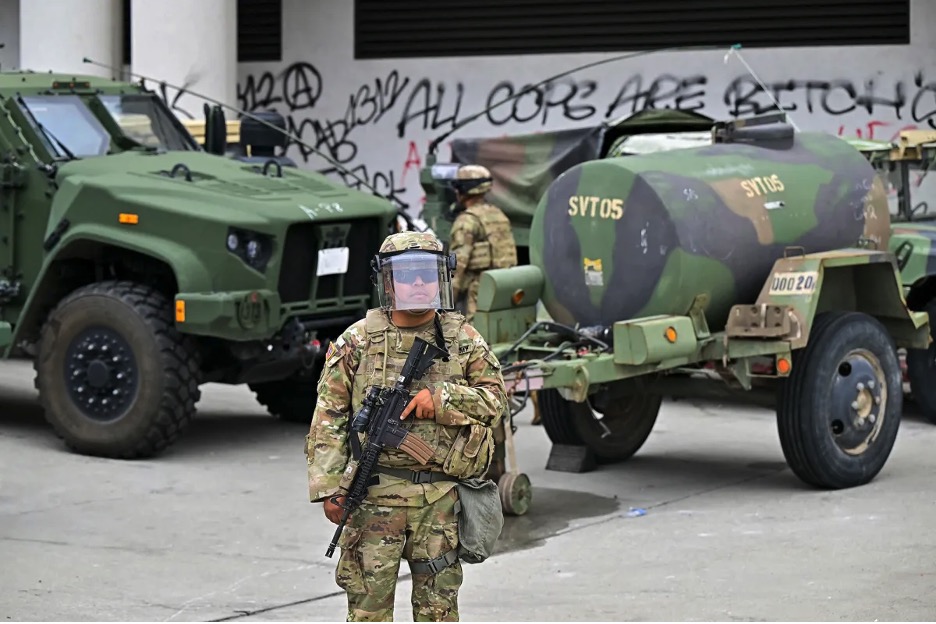Comments
HOUSING CRISIS - Since 2017, AIDS Healthcare Foundation, the parent organization of Housing Is A Human Right, has bought more than a dozen old hotels and motels in the Los Angeles area, renovated them, and quickly produced more than 1,400 units of low-income and homeless housing. AHF’s successful adaptive reuse model is an urgent, cost-effective response to the homelessness crisis. L.A. City Hall, which aims to beef up its own effort to build more homeless housing, would be wise to replicate it.
In February 2022, L.A. City Controller Ron Galperin, who has since left office, released a major report about the problems with City Hall’s years-long work to produce more affordable and homeless housing through Proposition HHH. What he found was astounding: city-funded projects were taking between three to six years to complete, and the average cost per unit was nearly $600,000 – a huge amount of cash.
Cost and timeliness are important. Government funding for low-income and homeless housing is limited, and municipalities such as L.A. must keep costs down in order to build as much housing as possible. Government must also produce housing quickly – more than 7,300 unhoused residents have died on the streets in the L.A. area since 2014. Lives, in other words, hang in the balance.
L.A. City Hall clearly needs to come up with more effective ways to build affordable and homeless housing – and activists are hoping the new City Council members and mayor elected this November will usher in that change. Elected officials don’t have to look far for a new model.
Based in Los Angeles, AIDS Healthcare Foundation saw that its clients were increasingly impacted by the gentrification and housing affordability crises in L.A., which were fueling homelessness. Founded in 1987 as a housing and medical-care provider for terminally ill AIDS patients, AHF decided to return to its roots and establish Healthy Housing Foundation to build low-income and homeless housing.
AHF’s model was simple: utilize the adaptive reuse of existing buildings, such as old hotels and motels, to quickly and cost-effectively produce low-income and homeless housing. It’s been a massive success: in less than five years, AHF has renovated 13 hotels and motels in the L.A. area and created more than 1,400 affordable units. In addition, the nonprofit spent only $102,000 per unit to build that housing.
Compared to the city of L.A., AHF was constructing low-income and homeless housing at a fraction of the cost and at a fraction of the time. AHF also has many more housing projects in the pipeline not only in Los Angeles, but also Florida and New York. In fact, the nonprofit’s model can be used by government agencies in cities throughout the United States.
Adaptive reuse is part of AHF’s larger, multi-pronged strategy to urgently address the housing affordability and homelessness crises. It’s called the “3 Ps”: protect tenants through rent control and other tenant protections; preserve existing affordable housing, not demolish it; and produce new affordable housing through adaptive reuse and pre-fab modular housing.
Housing Is A Human Right, the housing advocacy division of AHF, has been urging L.A. officials for years to implement the 3 Ps. With the changing of the guard in November, HHR and AHF are hopeful that the 3 Ps will finally be carried out at L.A. City Hall.
(Above photo: Healthy Housing Foundation press conference at one of its adaptive reuse hotels in Downtown Los Angeles.)
(Patrick Range McDonald is a best-selling author and award-winning journalist. A longtime staff writer at LA Weekly, McDonald is now the advocacy journalist for Housing Is A Human Right, the housing advocacy division of AIDS Healthcare Foundation, and a contributor to CityWatch.)
















